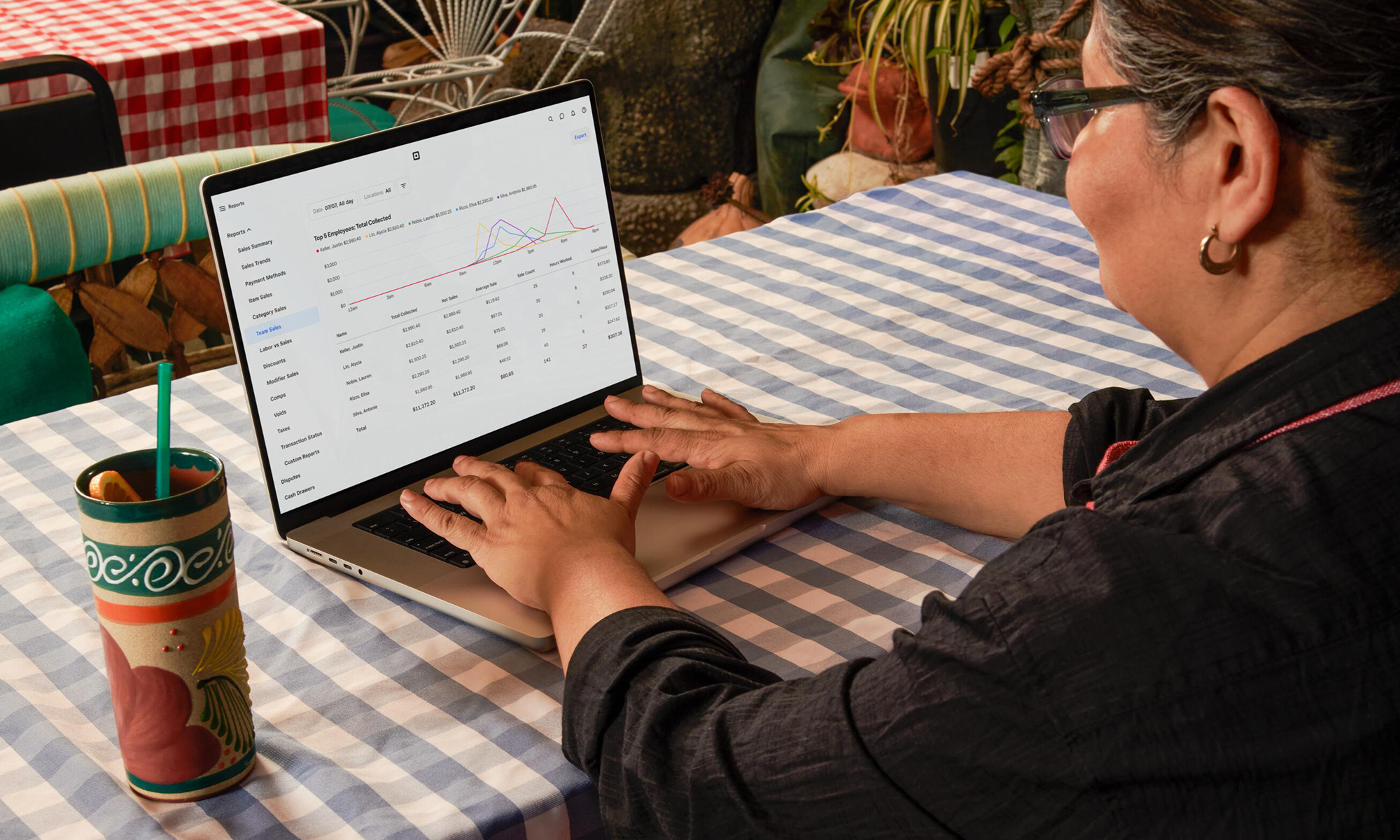Square's (SQ 0.05%) stock was cut in half over the past month as the novel coronavirus (COVID-19) pandemic forced businesses to close across the U.S. and around the world. Small businesses, which account for a large portion of Square's payment volume, could struggle to stay solvent if the government doesn't pass an aggressive stimulus package soon.
Those headwinds are brutal, but investors should consider five reasons Square can still weather this economic storm and emerge as a stronger company.
1. Square plans to help small businesses
The projections regarding small businesses are certain alarming: A recent Goldman Sachs survey found that 96% of 1,500 businesses surveyed were already affected by the COVID-19 outbreak and that 51% couldn't operate past the next three months.

Image source: Square.
Yet that's a worst-case scenario that assumes that the government won't step in with aggressive stimulus measures -- including zero interest rates, cash payments to Americans, and the suspension of rent and mortgage payments.
Square is also stepping in with new measures to help small businesses, including curbside pickup options, refunds for all subscription fees in March, and online resources for expanding digital services. Square is essentially subsidizing small businesses throughout the crisis -- but that support could also increase the stickiness of its ecosystem.
2. The expansion of Square Capital
The FDIC recently approved the expansion of Square's financing arm, Square Capital, into an industrial bank. Square Capital already provided loans to small businesses, but the approval will allow it to facilitate much larger loans.
Square Capital, along with the Cash App and subscription services for merchants, boosted Square's subscription and services revenue by 78% annually last quarter. That high-margin growth engine accounted for a fifth of Square's top line and widens its moat against rivals like PayPal.
The expansion of Square Capital, and the possible reduction or suspension of its fees, gives Square more ways to support small businesses throughout the crisis. That lifeline could buy merchants more time until the government gets its act together.
3. The ongoing growth of Square Cash
Square's Cash App surpassed PayPal's Venmo in U.S. downloads last year, according to App Annie, and grew its monthly active customers 60% annually to 24 million last December. The app's revenue and gross profit surged 147% and 104% year-over-year, respectively, last quarter.
The usage of Cash's peer-to-peer payments could surge throughout the crisis as people stop physically touching cash or credit cards. The usage of Cash's bitcoin and stock trading features (which Venmo doesn't offer) could climb as investors try to buy the market dips, and more people could use Cash to help their struggling peers.
4. A growing ratio of large sellers
Square has also been reducing its dependence on smaller sellers over the past few years. Last quarter, 55% of its GPV (gross payment volume) came from large sellers which an annualized GPV of over $125,000 -- compared to 52% a year earlier. 27% of its merchants had an annualized GPV of over $500,000, up from 24% a year ago.
Those bigger merchants should weather the coronavirus crisis better than smaller ones, then bounce back faster when it finally ends.

Image source: Square.
5. A recent debt offering and a comfortable cash cushion
Square ended last quarter with $2.1 billion in cash, cash equivalents, restricted cash, and investments in marketable debt securities, thanks to a big boost from Eventbrite's IPO and its sale of Caviar to DoorDash.
Square also recently priced a fresh offering of $1 billion in convertible notes due in 2025, which could boost its cash and equivalents position above $3 billion. Square isn't consistently profitable by GAAP measures, but that robust cash position indicates that it can afford to incur steep losses over the next few quarters without any liquidity issues.
My outlook: near-term pain, long-term gains
Square's growth rates will likely dip sharply over the next few quarters. However, the stock now trades at historically low valuations and seems to have already priced in a full-blown recession bringing a massive loss of revenue from small businesses.
I'm not saying Square's stock has bottomed, but I believe it will emerge from the crisis as a stronger company. Its new tools for merchants, subsidized subscriptions, and beefed-up financing capabilities at Square Capital should soften the blow for small businesses, and its strong cash position should prevent its business from falling off a cliff.






